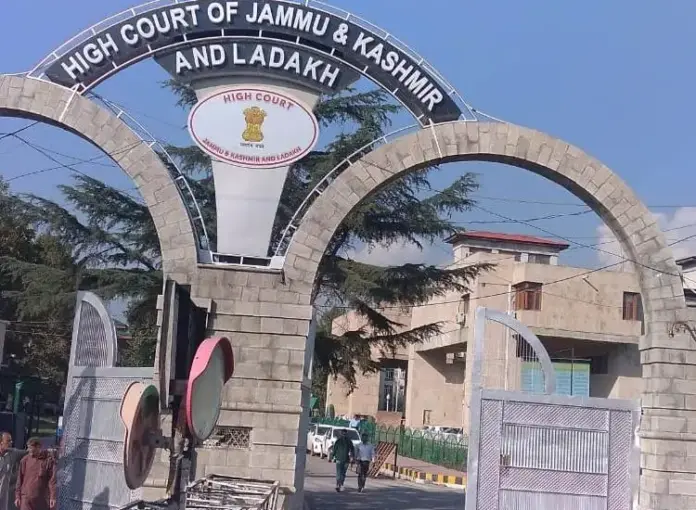Srinagar: Observing that mere registration of FIR cannot make ground for refusal to issue, renew or impound passport, the J&K High Court has directed the authorities to release or issue a fresh passport to former Indian Administrative Service (IAS) officer, Sajad Ahmad Khan, whose passport had been impounded for being allegedly involved in illegal arms license case.
Khan retired from service in 2018 and aspired to go on a pilgrimage to Mecca and Madina. He was aggrieved of the decision by the government of India to seize and impound his passport.
He in 2021 had also approached the CBI-designated Anti-Corruption Court for release of his travel document but his plea was rejected.
An FIR was lodged against Khan and many other deputy commissioners of J&K besides some top police officers for being involved in issuance of illegal arms licences.
The Regional Passport Officer, Srinagar had sent an e-mail to Khan informing him that his passport has been suspended due to Section 10(3) (c) i.e. security threat to India.
The case was today heard by Justice Sindhu Sharma who recorded that mere pendency of the investigation would not give power to the authorities to impound the passport under Section 10(3)(e).
“Since mere registration of the FIR by the investigation agency is also no ground for refusal to issue, renew or impound the passport. It is only upon the filing of a charge sheet and the court taking cognizance of the offence that it may be said that a criminal case is actually pending,” he said.
The bench set aside the communication dated 03.02.2023, directing impounding of the passport of the petitioner. It directed the Regional Passport Officer to pass an appropriate order either to release the passport of the petitioner or issue a fresh passport to him after completion of all formalities.
The bench also set aside the 2021 order by the Special Judge, Anti-Corruption, CBI Cases, Jammu, to the extent of refusal to release passport to Khan.
The bench said, since the passport of the petitioner was impounded under Section 10(3)(c) of the Passport Act, the petitioner has a right to be heard to oppose the ground on which his passport sought to be impounded.
The email/notice by passport officer at asking the petitioner to contact him is issued as a meaningless formality, it said.
Justice Sharma noted “the power to impound the passport under Section 10 of the Passports Act is a serious restriction on the fundamental rights of the citizen and order of impounding/suspending passport without sufficient cause or without following principles of natural justice is liable to be set aside”.
He cited the apex court judgment titled Maneka Gandhi v. Union of India, saying it is a well settled law that principles of natural justice are to be read in any action under Section 10(3) (c) of the Act. “For this reason, the action of impounding of passport is liable to be set aside”.
The court said that if the passport of the petitioner is impounded under this Section, the authority must record in writing a brief statement of reasons for passing such an order as per the mandate of Section 10 sub section (5) of the Act.
Admittedly, this requirement has not been complied with by the respondents. This apart, the impugned order has been passed not following the principles of natural justice, it noted.
The court said “the respondents have not provided opportunity of hearing to the petitioner. The respondents have failed to place any material on record to indicate that the impounding of the passport of the petitioner was with regard to the security concerns of the Union Territory of J&K and the fact that impounding of passport was necessary in the interest of security of India”.
Thus, the order of impounding the passport of the petitioner under Section 10(3)(c) has not been validly exercised, the court said.
The court made it clear that mere pendency of the investigation would not give power to the authorities to impound the passport under Section 10(3)(e).
“Since mere registration of the FIR by the investigation agency is also no ground for refusal to issue, renew or impound the passport. It is only upon the filing of a charge sheet and the court taking cognizance of the offence that it may be said that a criminal case is actually pending”, it said further.
It added “mere registration of a criminal case against a person does not amount to proceedings being pending against him before a criminal court. Clause (e) of Section 10(3) applies only if the proceedings in respect to the offence alleged to have been committed are pending before the criminal court where the passport is impounded. The proceedings are pending only if a chargesheet has been filed, which is not the case. As no chargesheet has been filed, therefore, the passport could not have been impounded”.













